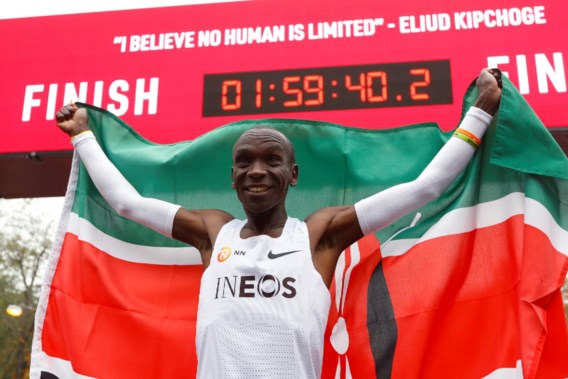“Because of what I went through, I don’t trust anyone anymore. I don’t even trust my own shadow anymore.” Kenyan long-distance runner Eliud Kipchoge has testified in an interview with the BBC about the impact of an online hate campaign that began after the death of fellow marathoner Kelvin Kiptum.
Kiptum died in a car accident in his home country of Kenya in February this year. He was 24. By October 2023, he had broken Kipchoge’s world record by almost half a minute. The fact that Kiptum was clearly the marathon hero of the future proved to be a breeding ground for online speculation. The theory began to circulate on social media that Kipchoge could not stomach the idea that Kiptum would overthrow him and that he had therefore set up an assassination plot.
“I was shocked that people on social media said I was involved in this boy’s death,” Kipchoge, 39, said in an interview with BBC Sport Africa. “I’ve been given some really ugly things. They would burn down the training camp, they would burn down my investments in the village, they would burn down my house, they would burn down my family.”
Kipchoge tells in the interview how scared he was and how powerless he felt. “I don’t have the power to go to the police and say my life is in danger. I started calling a lot of people, I asked my family to pay attention and be careful. I was very scared when my children went to school. I didn’t dare let them cycle around anymore.”
Friends and training buddies
He also feared the impact of the messages on his children. “My daughter goes to boarding school and fortunately does not have access to social media there, but it is hard for my sons to hear: ‘Your father killed someone’.”
“About 90 percent” of his friends have dropped him, Kipchoge also said. “It was very painful to hear those ugly words even from my own people, from my training buddies, from people I have contact with.”
Although his team wanted to get him off social media, Kipchoge did not consider deleting his accounts. “If I delete my accounts, it seems like I have something to hide. I keep my accounts. I have done nothing.”
In addition to his faith in humanity, his athletic performance has also taken a hit. In the Tokyo Marathon at the beginning of March, he only finished tenth, which is his worst performance since his marathon debut in 2013. “I hadn’t slept for three days.”
Kipchoge hopes to be there again next summer at the Olympic Games in Paris, where he can make history with a third marathon gold in a row. “It’s about standing up and going straight to your goal again,” he remains combative.

